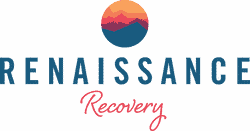ALCOHOL ADDICTION
Understand Alcohol Abuse and Alcohol Use Disorder
Alcohol addiction is a chronic relapsing disorder characterized by impulsive drinking despite negative consequences.
At Renaissance, recovery our goal is to provide evidence-based treatment to as many individuals as possible. Give us a call today to verify your insurance coverage or to learn more about treatment for alcohol use disorder (AUD).


By: Renaissance Recovery
Clinically Reviewed by: Diana Vo, LMFT
Last Updated:
02/29/2024
What Is Alcohol Addiction?
According to 2019 NSDUH data, 14.5 million people in the United States satisfy the criteria for alcohol addiction. This amounts to over 70% of all those people with substance use disorder presenting with alcohol use disorder, the formal name for alcohol addiction.
While these numbers are mind-boggling, what’s worse is that only 7% of these seek treatment, according to the same SAMHSA data.
The CDC characterizes alcohol abuse as any form of alcohol consumption that leads to damaged health and relationships, as well as impacting your ability to work. While all alcohol addictions vary slightly, they are all grounded in alcohol abuse.
Heavy drinking and binge drinking each qualify as alcohol abuse.

Is Alcohol Addictive?
Addiction is defined as a chronic and relapsing disease. Addiction is often used interchangeably with severe substance use disorder.
Experts almost universally agree with this concept of addiction as a disease, and while addiction has no cure, it can be treated, and effectively treated.
If untreated, ethanol alcohol addiction can be physically and emotionally damaging. Long-term alcohol abuse can also bring about permanent changes to brain structure and functioning.
Most estimates suggest up to 50% of your risk profile for any addiction is genetic. Beyond this, a variety of environmental and social factors also play a role in whether or not you become addicted to a substance like alcohol.
As addiction starts to build, you’ll find you require more alcohol to achieve the same effects as tolerance grows. By this point, you’ll also be liable to experience intense withdrawal symptoms if you stop drinking alcohol.

Alcohol Addiction Symptoms
When drinking alcohol becomes habitual, you’ll find you don’t feel normal when you have no alcohol in your system. This is when addiction becomes psychological. You feel that you require alcohol even if you are not physically dependent.
Physical addiction sets in once you are unable to quit drinking without experiencing severe withdrawal symptoms, such as these signs of alcohol addiction:
- Shakiness
- Tremors
- Anxiety
- Confusion
- Hallucinations
- Seizure
Both physical and psychological alcohol addiction is rooted in the way alcohol impacts the brain. When you consume alcohol, this releases endorphins in the areas of the brain responsible for reward processing.
Alcohol, then, hits home at the chemical level in several areas of the brain. At a psychological level, alcohol abuse can make you feel unable to properly function in the absence of alcohol. This is the reason why alcoholic relapse is so common.

Fight Back Against Alcoholism
Get evidence-based treatment to overcome alcohol addiction at Renaissance Recovery. Call our team now to learn more about the process.
Common Alcohol Abuse Symptoms
Below are some of the most common signs of alcoholism:

Common Alcohol Abuse Symptoms
The following are considered the primary symptoms of alcohol addiction:
- Being dishonest and secretive about your drinking
- Inability to refuse alcohol
- Loss of interest in hobbies and favored activities
- Irritability and anger
- Impaired physical appearance
- Reduced levels of personal hygiene
- Looking tired or sick
- Being frequently intoxicated
- Growing tolerance for alcohol
- Patterns of binge drinking
- Withdrawal symptoms in the absence of alcohol
- Co-occurring mental health problems
What To Do if You Have an Alcohol Addiction
If your alcohol consumption is starting to take over your life and to harm your physical wellbeing, it might be time to consider alcohol addiction therapy.
Addiction is not something to ignore.
Many people who abuse alcohol think of themselves as a high-functioning alcoholic, but any form of alcohol abuse is dangerous. If you think that you or a loved one has is a problem drinker, it is vital to seek out help sooner rather than later.
At Renaissance, we can help you with all levels of care, from an alcohol detox and residential rehab to step downs including PHP, IOP, and general outpatient treatment. If you don’t think you have healthy relationship with alcohol, contact our team today and learn more about how we can help you conquer alcohol use disorder and fight for long-term sobriety.

